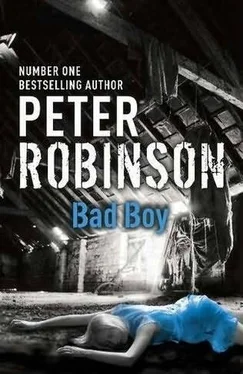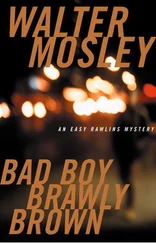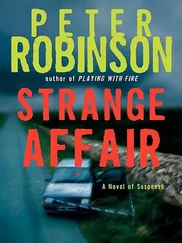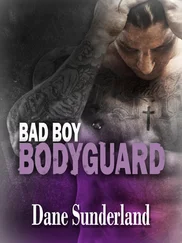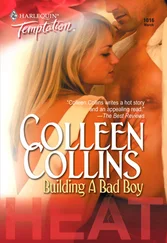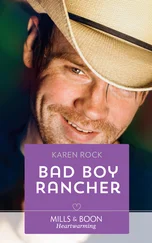That wouldn’t be a problem, Banks thought. Annie didn’t much like playing sports. She did love yoga, though, and the loss of flexibility would be a great blow to her. “What about the bullet fragments?” he asked. “Did they stray far from the entry?”
“They caused an additional amount of muscle and tendon damage we could have done without,” Sandhar said, “which compounds the problem of the fractured clavicle, of course. That’s what makes recovery an even slower and more painful process. But that isn’t the worst of it.”
Banks swallowed. “What is?”
“The other bullet. The one that didn’t fragment. It pierced the right lung, as I said, and it lodged in the spinal column, close to T5, one of the central vertebrae, in the anterior thoracic area. Do you-”
“I understand what you’re saying,” said Banks. “Please go on.”
“There was no vertebral damage, and fortunately the bullets weren’t hollow-points. But it is my opinion that Ms. Cabbot will require further surgery, and with such delicate surgery, there’s always a danger…”
“Of damage to the spinal cord?” Banks interrupted. “Of paralysis?”
“Yes,” said Sandhar. “But I want you to know that we have in this hospital perhaps the best trauma specialists, thoracic surgeons and spinal injury teams in the country, if not in all of Europe.”
“I know your reputation,” said Banks with a wan smile. “But there’s still a risk she’ll end up in a wheelchair?”
“To put it bluntly, yes. There’s always a risk, even without the surgery. In fact, some surgeons recommend against the operation. They argue that removing the bullet could destabilize the spinal cord.”
“But you don’t think so?”
Sandhar shrugged. “As I said, there’s always a risk. A second opinion would be entirely acceptable, given the circumstances. Her father already knows about this and he’s thinking it over. There are also many other factors, such as infections and blood poisoning to consider, too.”
“I think the last thing we’d want is a doctor fight,” said Banks. “When do you plan on performing this operation?”
“It’s hard to say,” said Sandhar. “We certainly can’t go in until the damaged lung has healed and Ms. Cabbot has fully recovered from the trauma she suffered. And we would like to see her recover from her other injuries. She’s young, strong, healthy in every other respect, as she has already proven, so I don’t foresee any serious problems there, but she needs to be stronger.”
“What kind of time period are we talking about?”
“If we operate, the sooner we do it the better. Scar tissue starts to form in, say, two weeks, and that makes the surgery more difficult. Of course, it may not be possible to do it that soon, depending on her general progress.”
“Will she have to remain in hospital during this period?”
“Oh, yes. She will also need to avoid unnecessary movement.”
“And for now?”
“We’ll keep her under close observation. We’ll also be keeping track of the lodged bullet, on the lookout for any movement, any slippage.”
“And if it does slip?”
Sandhar smiled. “Not to worry too much, Mr. Banks. We still have, as you say, a little wiggle room. Just not quite enough to risk operating until some of Ms. Cabbot’s other issues are resolved.” He stood up. “I hope I’ve been helpful. Now you really must excuse me. I have patients to see.”
“Thank you again,” said Banks.
IT WAS strange to be back in the old Steadman house, Banks felt, as he climbed the stairs to his upper flat. It must have been close to five years since he had lived there after the fire, when Newhope Cottage was under repair. He opened the door, walked into the hall and turned the lights on. The place smelled fresh, with a hint of some sort of lavender-scented air spray, and apart from the meager furniture it was empty, with nothing to show that anyone had ever lived there-no family photos, only generic landscape prints in Yorkshire Trading frames; no mess, no phone message light blinking. Nothing.
Not surprisingly, being there made Banks immediately think about his brother Roy, and that night he had wobbled back, a little drunk, from the Dog and Gun, puzzled as to why Penny Cartwright had turned down his dinner invitation, and found Roy’s distress message waiting for him. That had set off a chain of events that took him down to London and deep into the shady world his brother inhabited. Burgess had been involved in that case, too, as he had in so many.
Banks dropped his suitcase in the bedroom, noticing the bed was freshly made up, covered in a green candlewick bedspread, and glanced out of the curtains. Nothing had changed. The room looked out over a tiny disused Sandemanian graveyard, no bigger than a garden, and some of the tombstones leaned against the wall beneath his window. He had often enjoyed a feeling of tranquillity sitting on the window seat looking down over the graves on moonlit nights, listening to the gentle wind sough through the long grass, but tonight he didn’t feel like sitting there. That night five years ago, he hadn’t known just how closely death was to brush against him, but this time it almost had. Almost. Annie was alive, though she might lose the use of her legs, or even everything from the chest down. Tracy was alive, though her life was in danger. He was in no mood for memento mori.
Banks took his smaller carry-on into the bathroom, where he unpacked his regulation plastic bag of toiletries before settling down in the living room. Then he took out the bottle of ten-year-old cask strength Laphroaig, all dutifully sealed and stamped, that he had bought at the San Francisco Airport duty free. He hadn’t been certain when he bought it that he would want to drink it himself, but the little taste Burgess had given him at Heathrow had gone down very well indeed.
After he had poured himself a small measure into a glass he found in the kitchen, Banks opened the living room curtains and lifted the window a few inches to let in some air. The room had a magnificent view north, from the thin ribbon of Gratly Beck glittering in the moonlight past Helmthorpe Church, with its square tower and odd turret attached, then beyond the lights of the small market town to the opposite daleside, peaking in the magnificent limestone curve of Crow Scar above the high pastures and drystone walls, still visible, white as bone in the silvery moonlight.
Banks carried a portable docking station to play his iPod in hotel rooms, and now he took it out and plugged it in. The sound wasn’t great, but it was impressive enough coming from a unit the size of a paperback. He docked his iPod, selected Norma Waterson’s solo album and turned out the overhead light as that beautifully forlorn voice started singing “Black Muddy River,” one of his favorite late-period Grateful Dead songs. He sat down and put his feet up, sipped Laphroaig, looked out toward Crow Scar and luxuriated in the music.
When he closed his eyes the backs of his eyelids seemed to fragment in discs and chips of bright shifting colors, like a kaleidoscope. He rubbed them, but it only made them worse. He sipped some more whiskey and tried to keep his eyes open. It was about three o’clock, and he didn’t think much was likely to happen until morning. He felt so impotent, unable to do anything for Tracy, and he agonized again over getting in touch with her mother, his parents, or Brian. If anything happened to her, they’d never forgive him. But if she came out of it as he hoped she would, then they need never know. Her name hadn’t been mentioned in the media yet
Norma Waterson sang about how God loves a drunk, and Banks continued to follow the drift of his thoughts. He didn’t know if he even wanted to try to sleep or not. It had been so long, he feared that if he did drop off he might not hear the phone, which sat on the chair arm beside him, might never wake again. It seemed ages since he had woken up in Teresa’s bed at the Monaco in San Francisco. Surely it couldn’t be only two days ago? She would be back to her life in Boston now, and their encounter would start slipping slowly but surely from her memory, the way such things do without further contact. The flesh forgets.
Читать дальше
